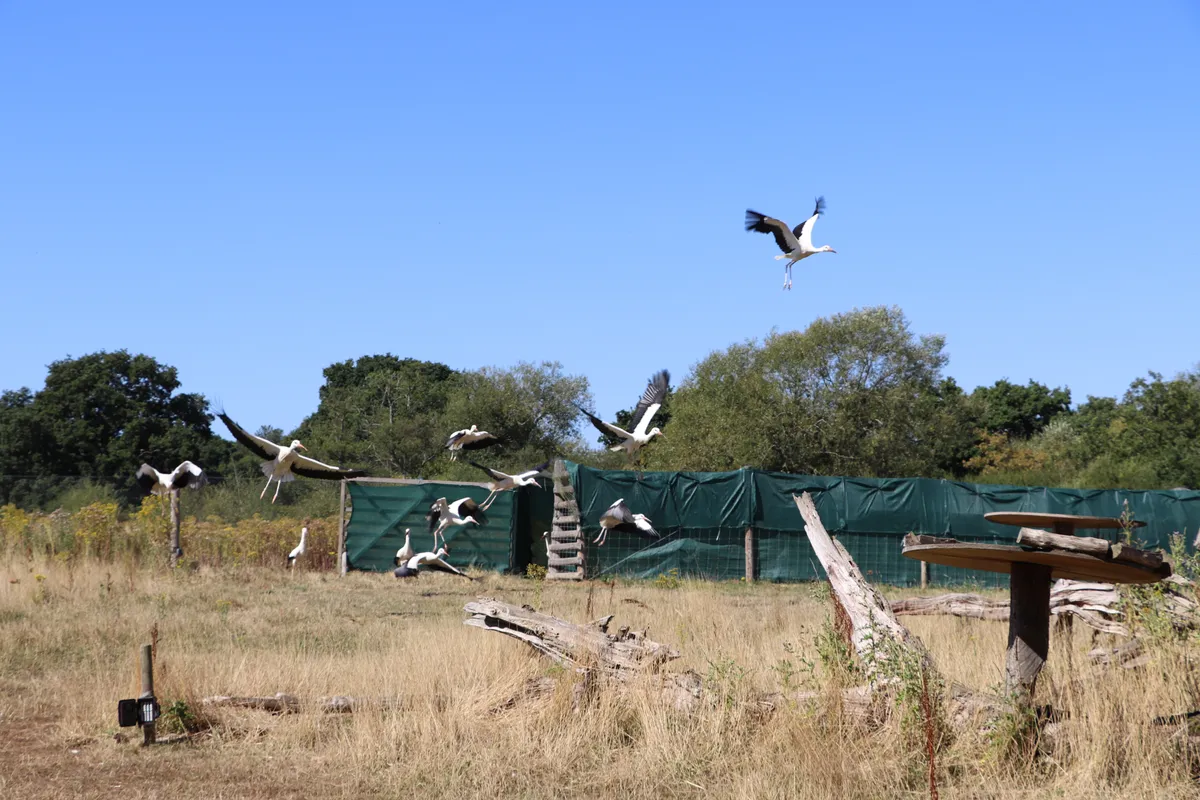A total of 37 juvenile white storks were introduced to Knepp Wildland last week as part of a phased release programme by the White Stork Project.
There are currently nine breeding pairs of white storks in Sussex, which successfully reared twenty chicks this year.
The White Stork Project hopes that the newly introduced storks will boost southern England’s breeding population to at least 50 breeding pairs by 2030.
“The White Stork Project has seen great progress in the past three years with nine pairs successfully breeding in the wild in Sussex and with the continuation of our captive breeding and release programme,” said Lucy Groves, Project Officer for Durrell Wildlife Conservation Trust, a key partner in the project.
“This year we are releasing a record number of 37 captive bred juveniles here in Sussex, 33 of these are from our partners at Cotswold Wildlife Park and Gardens who have done a fantastic job of raising these juveniles again this year.
“We are pleased to say that an additional four birds are also coming from Wildwood Trust in Kent, who are getting involved with the project for the first time and we hope that they will continue to support the project by providing juveniles each year.

“All the white storks are ringed with our blue project rings, beginning with the letters GB, and we are asking the general public to contribute to our monitoring programme by reporting sightings through our website,” added Groves.
“Eight of the juveniles, including one of the Wildwood birds, have been fitted with specially designed GPS tracking devices. These tags will allow us to monitor their journeys as they head south on migration.
“Several White Stork Project juveniles have made it across Europe and into Morocco. We will be watching closely to see what they do this year.”
Staff at White Stork Project are hopeful that in the coming days and weeks, the newly released juveniles will attempt to migrate south for the winter.
Over 2,000 sightings of UK storks have been recorded across the UK, France, Germany, the Netherlands, and Spain since releases began in 2019, offering invaluable information about the movement and behaviours of these birds. To help aid the project, submit sightings of white storks to www.whitestorkproject.org/report-a-sighting
Keep an eye on @ProjectStork social media and the news page of the website for updates on their travels.





